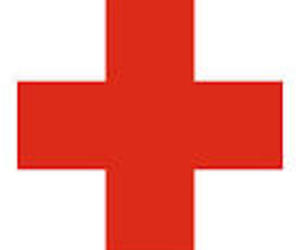Cuba says will consider U.N. and Red Cross visits
- Submitted by: lena campos
- Politics and Government
- 05 / 04 / 2013

Cuba said on Friday it would consider letting in U.N. human rights investigators to examine allegations of torture and repression and allowing Red Cross officials access its prisons after a gap of nearly 25 years.
Dissidents say security forces round up opponents of the Communist country for short-term detention and some are mistreated. Cuban officials deny allegations of arbitrary detention or torture.
The call for access by Western countries was among 293 recommendations presented to Cuba at the U.N. Human Rights Council in Geneva during a debate on its record. Others included granting Internet access and freedom of expression.
The ICRC visited Cuban jails from 1988-89 but the agency halted them in November 1989, saying that it no longer had access to all the detainees it wished to see, although confidential talks about the issue have continued.
No U.N. investigator has visited since 2007 despite several requests. Cuba put off indefinitely a fact-finding mission by the U.N. torture investigator that was agreed in 2009.
Cuba's delegation said that it would respond at the forum's session in September after carefully examining the list.
Describing the requests for access as among the "most sensitive", Pedro Luis Pedroso Cuesta, a deputy director at Cuba's Foreign Ministry, said Havana would consider inviting U.N. rapporteurs, including on torture.
"Cuba is open to consider those requests and will give appropriate responses to those requests as they are presented to the country," he told Reuters in Geneva. "We don't see any stumbling blocks there for us to say 'No way'."
He was more cautious about resuming the Red Cross visits.
"There has been a permanent exchange and interaction between Cuba and the Red Cross. There is nothing to hide on the part of Cuba," Pedroso said.
"We will continue to be open to giving follow-up to these issues with the International Red Cross and we are going to evaluate when we receive a more specific request. I don't think it is appropriate to pre-judge what will be the decision."
President Raul Castro has introduced some economic and other reforms since taking over in 2008 from his brother Fidel Castro who put in place a Soviet-style, state-run economic model after the 1959 revolution.
However, the independent Havana-based Cuban Commission of Human Rights said in January that political detentions rose sharply in 2012 and would likely increase again as the government tries to keep a lid of dissent over poverty and what the group sees as a lack of prospects.
A total of 92 political prisoners were currently held in Cuban jails, Elizardo Sanchez, group president, told reporters in Geneva on Wednesday. A further 350 were held in short-term detention on political grounds, he said.
Havana questions the validity of the group's numbers.
Source: Reuters.com
Comments